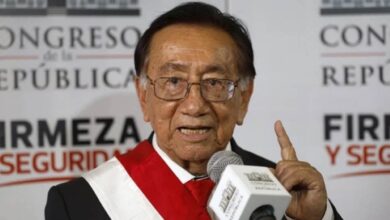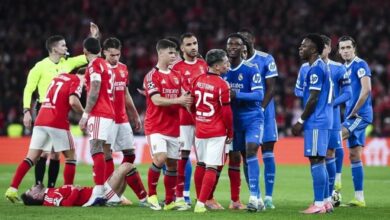Elections in Honduras: two presidents?
The Central American country has been paralyzed awaiting the official report

Leer en Español: Elecciones en Honduras: ¿dos presidentes?
Honduras is experiencing moments of uncertainty after both the current president, Juan Orlando Hernández, and his main opponent, Salvador Nasralla, declared themselves winners before the first results of the presidential elections were published. According to the first data of the Supreme Electoral Tribunal (TSE), with 57% of the polling tables, Nasralla takes the lead with 45.17% of the votes, while Hernández has 40.21%.
Six million voters have taken part in the elections through which members of congress and mayors are also elected.
President Hernández has been heavily criticized by the opposition for presenting himself as a candidate for his second term even though re-election was prohibited under the Honduran constitution until 2015. The president, a close ally to the United States, has championed economic policies focused on attracting foreign private investment.
His term in office has been rocked by controversy. A corruption scandal came to light in 2015 implicating the National Party in an embezzlement scheme that allegedly funneled millions of dollars from the resource-strapped social security institute IGNORE INTO Hernandez’s 2013 presidential campaign.
Political analyst Victor Meza, director of the Honduran investigative center known as CEDOH and former interior minister, affirmed that “the trend is irreversible and Nasralla won the election”. Meza was emphatic that “the victory of the opposition represents the defeat of presidential continuity, political authoritarianism, and also the defeat of corruption”.
The electoral body has affirmed that the official results, including for Congress and other offices, may not be released until November 30th.
Nasralla, a 64-year-old sportscaster and one of the country’s best-known television personalities, was making his second bid for the presidency. Although he has a reputation of being a conservative, he ran as the candidate of the Alliance Against Dictatorship, a coalition formed with the leftist party of former President Manuel Zelaya who was ousted in a military coup in 2009.
The preliminary result “suggests that Hondurans are unhappier than we might have expected with the corruption of this government and some of the human rights issues”, said Geoff Thale, vice president for programs at WOLA, a nonprofit Latin American human rights group in Washington D.C., United States.
Honduras has an anti-corruption mission backed by the Organization of American States, which has worked for more than a year to help strengthen the country’s crime fighting institutions. Nasralla said he wants a system similar to that in Guatemala, where a United Nations-supported commission has worked with local prosecutors for more than a decade to pursue corruption cases that have even reached the presidential office.
“The Honduran people decided and today I say congratulations to Salvador Nasralla as the next elected president of Honduras,” acknowledged the presidential candidate of the Liberal Party, Luis Zelaya. “So, we all have to abide by and respect the sovereign decision of the people and those who have lost who accept the defeat because Honduras has spoken”.
The Supreme Electoral Tribunal has been strongly questioned because it issued a statement prior to the elections where it offered the results two and a half hours after the end of the event, but the first official report was scheduled to be published on the 27th.
On the other hand, the results of the legislative and municipal elections have been delayed until there is a solution to the presidential issue.
Latin American Post | Carlos Eduardo Gómez Avella
Copy edited by Susana Cicchetto





